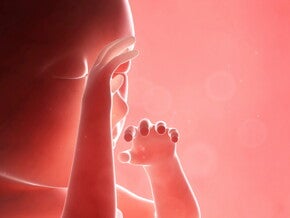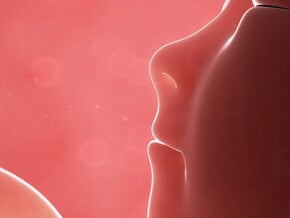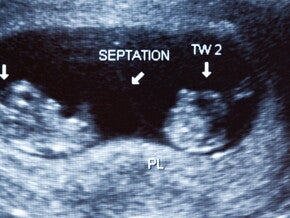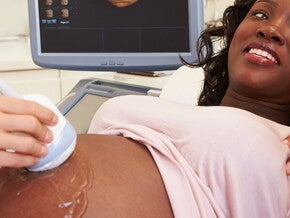
The third stage of labour
The third stage of labour
This stage lasts from the birth of the baby until the placenta is delivered, usually from 5–20 minutes.
The uterus continues to contract after the baby is born. You may be asked to push with the contractions to deliver the placenta. The doctor or midwife will examine the placenta to ensure that it is complete. The uterus will also be examined and stimulated to contract in order to control bleeding.
These contractions may be uncomfortable; if so, use your breathing techniques.

Related articles


Labour
As labour starts, a mother’s mood changes and she becomes less aware of what is happening outside her body, and more aware of what is happening inside her body.
5 mins to read

Nutrition during pregnancy
By taking responsibility for your body, you can maximise your level of wellbeing and enjoy good health.
Good nutrition is of the utmost importance during your pregnancy
5 mins to read

Personal considerations
You may need to consider some personal issues before you become pregnant.
1 min to read

Checklist - maternity ward suitcase
*Check whether the maternity ward has a list of the items you will need.
Items for hospital stay
5 mins to read

Medication for pain relief
In a normal, uncomplicated labour and delivery, the use of medication is not always necessary. Your own resources are often enough.
5 mins to read



Signs of labour
The following signs of labour may occur in any order.
1. Progressive contractions
5 mins to read



Multiple births
Regular prenatal care is most important if you are carrying more than one baby, as the risk to you and your babies is higher.
1 min to read

Prenatal Care
Discuss questions or concerns you or your partner may have with your caregiver at any stage of your pregnancy.
5 mins to read

The First Month of Pregnancy
Your pregnancy: weeks 1-4 – the start of your first trimester. The first signs of pregnancy may be very visible… or not at all.
2 mins to read

Subsequent prenatal visits
Your health, and the growth and development of your baby, must be closely monitored.
1 min to read

Preparation for childbirth and parenthood
The experience of childbirth and parenthood is an unknown adventure, which results in major changes to your life.
1 min to read

Prenatal Checklist
Preparing for your prenatal appointments is important. Find out our prenatal checklist, so you can ask the right questions to your healthcare provider.
1 min to read

Father’s role
Sharing the adventure of pregnancy, birth and parenting can make this one of life’s most rewarding experiences.
5 mins to read

Birth plans
A birth plan or wish list is not a set of commands and demands, and certainly not a contract.
5 mins to read